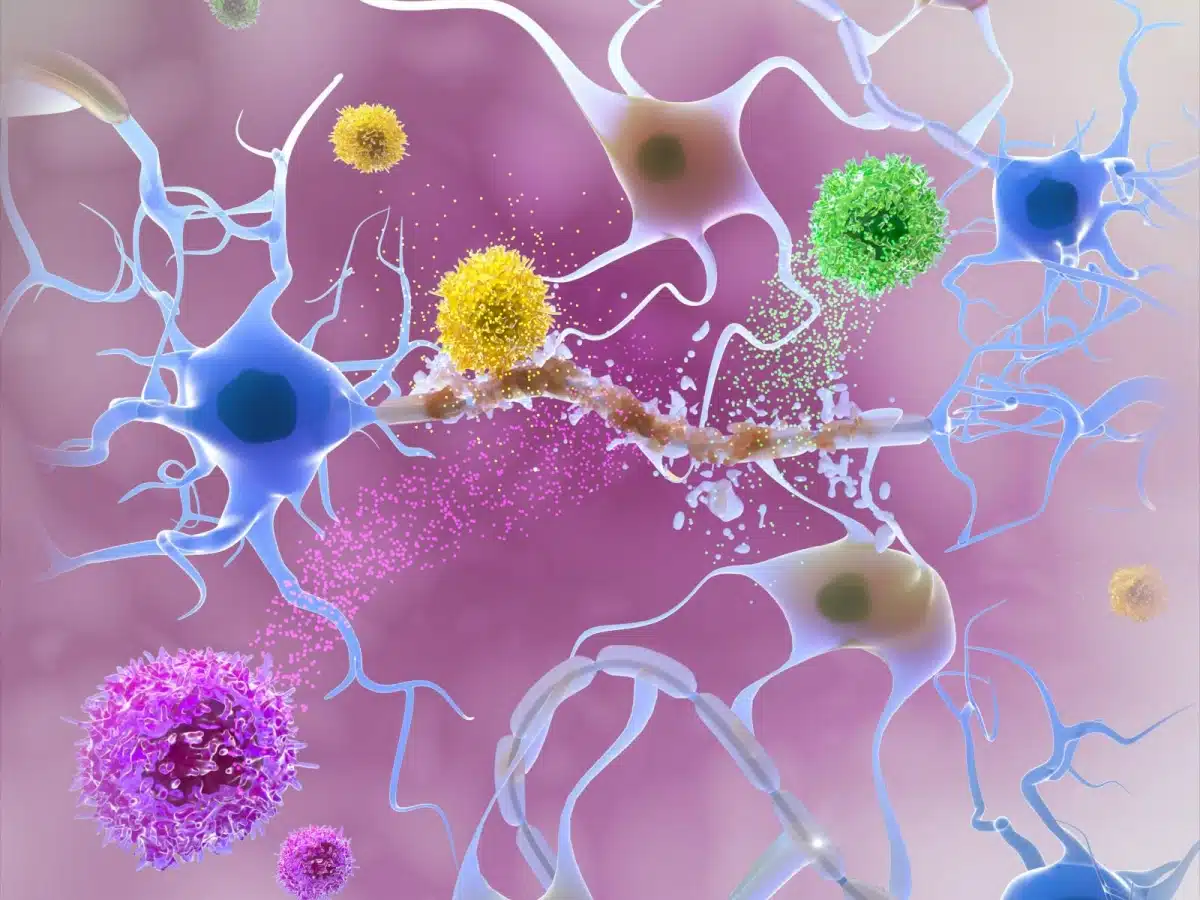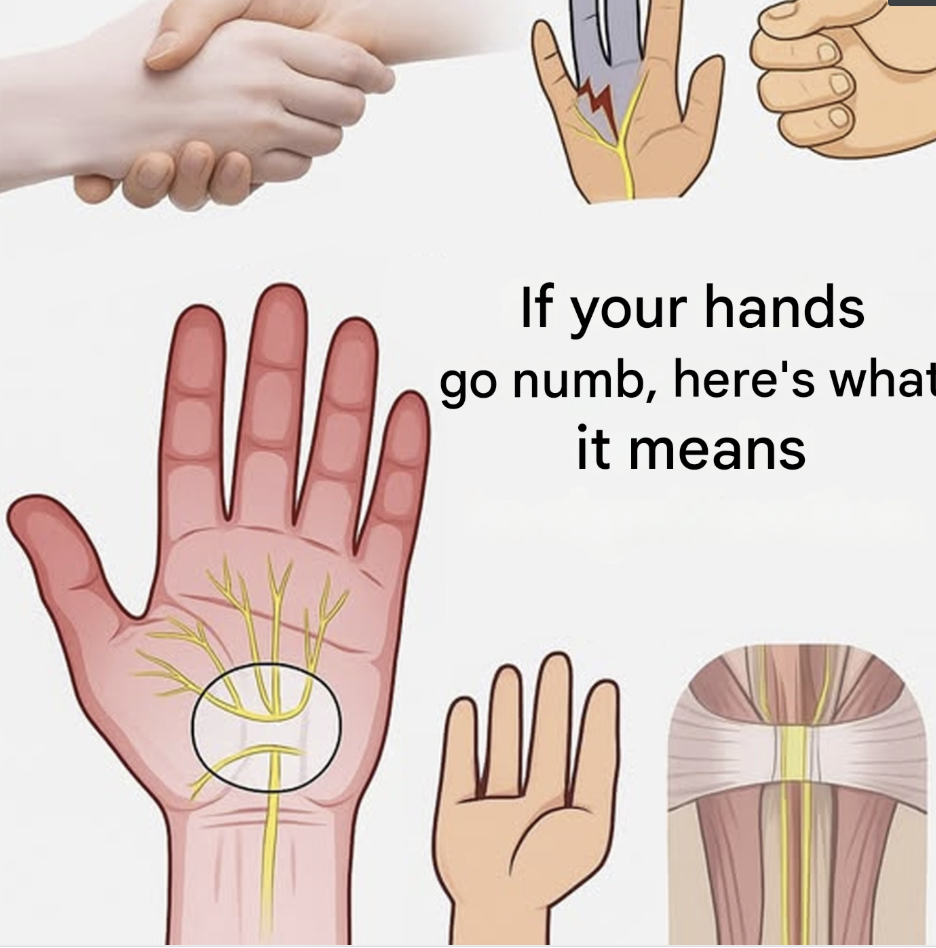-
Joint problems
Joint diseases such as osteoarthritis and arthritis can cause numbness due to joint degradation. This is especially common in older people, as cartilage deteriorates, compressing nerves.
-
Multiple sclerosis

This neurological condition affects the brain membranes and nerve fibers, causing loss of sensation in the hands. Numbness may be accompanied by muscle weakness , pain , or balance disorders .
-
Cervical osteochondrosis
A spinal problem, especially in the cervical spine , can compress nerves, causing tingling or numbness in the hands . People who suffer from frequent headaches or dizziness should be especially vigilant.
-
Carpal tunnel syndrome
This syndrome is caused by compression of the median nerve in the wrist. Repetitive movements (computer work, DIY) or poor posture can be the cause. Nighttime pain or tingling are often the first signs.
-
Venous thrombosis
A blood clot in the veins can impede circulation and cause numbness. This symptom is often accompanied by swelling or pain in the affected limb. Prompt consultation is recommended if in doubt.
-
Anemia and diabetes
Anemia , caused by iron deficiency, can reduce muscle oxygenation, while diabetes impairs peripheral nerves ( diabetic neuropathy ). In both cases, numbness is a sign that should not be ignored .
-
Brachial plexus neuralgia
Inflammation or compression of the brachial plexus , a network of nerves running from the neck to the hands, can cause sudden numbness , often after intense physical exertion or trauma.
When to worry?
Stroke, the most serious cause
In the most serious cases, sudden and prolonged numbness in a hand may be a sign of a stroke . If this symptom is accompanied by speech disturbances , partial paralysis or dizziness , call emergency services immediately (15 in France).
